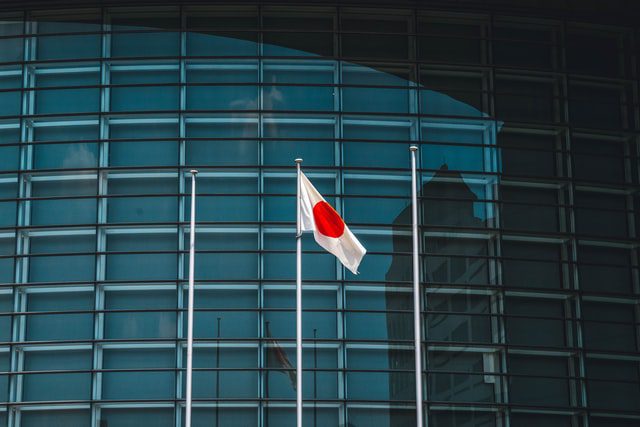Scholarship details
The Joint Japan/World Bank Graduate Scholarship Program (JJ/WBGSP) stands as a beacon of hope for students worldwide, offering a golden opportunity to pursue advanced studies in areas pivotal to global development. With the 2024 application cycle soon to open, it’s essential to comprehend what sets this prestigious scholarship apart, the organizations behind it, and the tapestry of culture that Japan, the host country, represents.
The Host Organizations: A Brief Overview
The Joint Japan/World Bank Graduate Scholarship is a collaborative initiative between two formidable entities.
The World Bank
Founded in 1944, the World Bank operates as a vital source of financial and technical assistance to developing countries worldwide. With a mission to reduce poverty and build shared prosperity, the World Bank supports investments in areas like education, health, public administration, infrastructure, and agriculture. The commitment to improving livelihoods globally is not just professional but deeply humanitarian.
The Government of Japan
Japan, home to some of the most innovative minds and technologically advanced societies, co-sponsors the JJ/WBGSP. The Japanese government has long supported initiatives promoting education and international cooperation, recognizing that human resource development is key to tackling global challenges. Japan’s investment in this program is a testament to its belief in nurturing global talent.
The Scholarship: An Overview
Value and Coverage
The $40,000 Joint Japan/World Bank Graduate Scholarship provides comprehensive financial support, covering full tuition, a monthly living stipend, round-trip airfare, health insurance, and travel allowance. This ensures that the chosen scholars can focus entirely on their studies and professional growth without financial burdens.
Eligibility Criteria
Candidates must be citizens of developing countries and have relevant professional experience in development-related work. A bachelor’s degree or equivalent is a prerequisite, and applicants must commit to returning to their home country to contribute to its development post-study. Preferences are given to candidates with strong academic backgrounds and a clear vision of how they intend to use their degrees to enhance development outcomes.
The Host Country: Japan
A Blend of Tradition and Innovation
Japan is a country where ancient traditions harmonize seamlessly with cutting-edge technology. From the serene tea ceremonies and historic temples to the bustling metropolis of Tokyo with its skyscrapers and tech hubs, Japan offers an enriching environment for scholars.
Cultural Immersion
Students have the opportunity not only to expand their academic horizons but also to immerse themselves in Japan’s unique cultural heritage. Whether it’s participating in traditional festivals, exploring world-class museums, or savoring Japanese cuisine, there’s a wealth of experiences awaiting them.
For scholars, understanding Japan’s cultural context is invaluable. It’s a country that has risen from post-war devastation to become a global economic powerhouse, maintaining its rich cultural identity while influencing global markets and trends.
Academic Environment
World-Class Institutions
Japan boasts numerous esteemed universities known for their rigorous academic programs and innovative research. Institutions like the University of Tokyo, Kyoto University, and Osaka University are acclaimed globally, providing a conducive environment for scholarly excellence. The robust educational infrastructure gives scholars access to state-of-the-art resources and learning tools.
Collaborative Research Opportunities
Japan’s emphasis on research and development means that scholars can engage in groundbreaking projects. Collaboration with leading experts allows them to contribute to innovative studies that have global implications, enriching their academic and professional journeys.
Living in Japan: Practical Insights
Accommodation
Most universities provide housing options for international students, ensuring a comfortable stay. Accommodations range from dormitories to private apartments, enabling students to choose what best fits their lifestyles.
Transportation
Japan’s efficient public transportation system makes commuting hassle-free. With the extensive network of trains, buses, and subways, students can easily navigate cities and explore the country.
Cost of Living
While Japan can be relatively expensive, the scholarship’s financial provisions cover the essentials. Budgeting wisely allows scholars to enjoy a balanced lifestyle, experiencing Japan’s offerings without financial strain.
Community and Networking
Support Systems
Japanese universities typically have dedicated international offices to assist with cultural adjustment, academic counseling, and administrative matters. These support systems are instrumental in helping scholars settle in and thrive academically.
Peer Networks
The JJ/WBGSP cohort comprises individuals from diverse backgrounds, enabling cross-cultural exchanges and forming lasting professional relationships. These networks can lead to future collaborations and offer peer support during the study period.
The Bigger Picture: Impact on Home Countries
One of the program’s cornerstone objectives is ensuring that scholarship recipients apply their newfound knowledge and skills to foster development in their home countries. Scholars are encouraged to work on projects that align with their country’s development priorities, ensuring that the investment in their education translates into tangible positive impacts.
Application Process: A Step-by-Step Guide
Preparing the Application
Interested candidates should start by meticulously gathering necessary documents such as academic transcripts, professional references, and proof of citizenship. A well-curated resume and a compelling statement of purpose highlighting their commitment to development work are crucial.
Online Submission
Applications are submitted online through the World Bank’s scholarship portal. Candidates must ensure all details are accurately filled out and submit by the deadline, typically in the first quarter of the application year.
Selection and Notification
The selection process involves rigorous scrutiny, including academic merit and professional experience. Successful candidates are notified a few months after application submission and begin preparations for their academic journey.
Conclusion
The $40,000 Joint Japan/World Bank Graduate Scholarship is not merely a funding opportunity; it is a transformative experience. It opens doors to world-class education, cultural immersion, professional growth, and the chance to contribute meaningfully to global development.
As the 2024 application cycle draws near, aspiring scholars from developing countries should seize this opportunity. It’s a chance to broaden their horizons, gain invaluable experience, and ultimately, drive progress in their home countries, embodying the true spirit of global citizenship and development.








